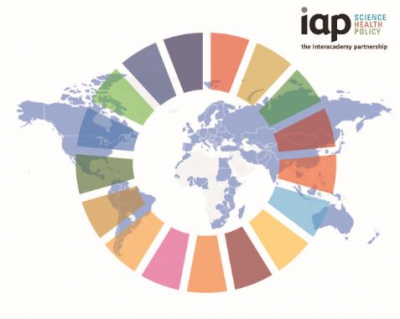


Realisation of the UN’s Agenda 2030 - the global blueprint for the future well-being of the planet and its people - requires transformative and urgent change in the world’s currently unsustainable practices. The greatest minds, resources, business models and innovations from all sectors and disciplines and across generations must be mobilised to effect this transformation together.
A new report from the InterAcademy Partnership (IAP) - the global network of over 140 science, engineering and medical academies – is designed to mobilise its members and the growing number of young academies around the world to engage with the SDGs more effectively. Representing some of the best scientific minds in their countries, national merit-based academies are an important source of knowledge and have an opportunity to effect positive change.
The report is the culmination of a three-year project, Improving Scientific Input to Global Policymaking with a focus on the UN Sustainable Development Goals (SDGs), funded by Carnegie Corporation of New York. This project has explored some of the pathways for feeding science into the SDGs and ways in which IAP and its members can contribute more effectively at global, regional and national levels.
Released at the UN STI Multi-stakeholder Forum (14-15 May 2019, New York City), an annual UN meeting to discuss key developments in STI for the SDGs, the report urges all stakeholders to engage openly and inclusively to ensure that evidence informs policy design, implementation and review. The report sets out concrete, actionable recommendations for merit-based academies and the wider science community, as well as the UN and its agencies. It also includes a checklist, “How you can support the implementation of the SDGs” to help individual scientists support and engage with the process.
Dr Eva Alisic, Co-Chair of the IAP project, said, “Now more than ever we need strong collaboration between scholars, policymakers and local communities. The health of our planet and people is at stake, and the UN agenda gives us strong direction on priorities. Science can and should play a key role in achieving the Sustainable Development Goals.”
Professor Jinghai Li, Co-Chair of the IAP project added, “IAP, its regional networks, and its national members have an opportunity to play a stronger role by better aligning themselves with UN policy frameworks and contributing scientific expertise—across all disciplines—to improve the development and implementation of global policies.”
Dr Tracey Elliott, IAP Project Director, concluded, “We urge academies and policymakers alike to adopt the report’s recommendations and work together in support of the SDGs.”